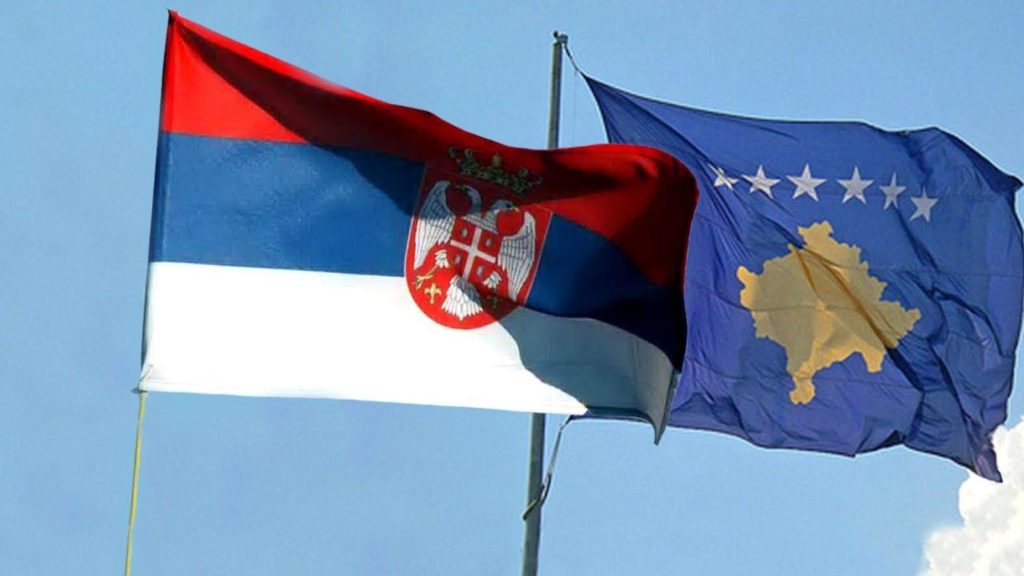While the EU refers to the vague “normalization of relations” as the dialogue’s goal, it is clear to every casual bystander there can be no final solution of the dispute without mutual recognition. Failing to address this design flaw, merely contributes to the continuation of a never-ending process that has frustrated many – most importantly the people in Kosovo and Serbia.
When U.S. Special Envoy Richard Grenell announced last month that President Hashim Thaçi and President Aleksandar Vučić would participate in a Washington summit to resume the dialogue between Kosovo and Serbia, one could not but feel sorry for the European Union.
The EU spearheaded and put tremendous resources, energy and political capital in facilitating the dialogue between Kosovo and Serbia to help them settle their protracted issues, without managing however to reach a final resolution. The U.S. initiative to take the lead and try to succeed where the EU had failed, was received with much skepticism in Brussels and in EU capitals.
But as the Specialist Prosecutor’s Office, Kosovo’s Hague-based prosecution, controversially announced on June 24 that it had filed an indictment charging, among others, President Thaçi, suddenly a new opportunity arose. The prosecutor’s abnormal decision to digress from legal tradition and its previously stated commitment to keep the content of indictments “confidential, unless and until confirmed by the pre-trial judge”, suddenly led to the cancellation of the D.C. meeting.
In a quick and unexpected manner, the EU and European leaders suddenly rushed to exploit this chance to take again the reigns of the peace efforts. Now, with Prime Minister Avdullah Hoti of Kosovo and President Vučić expected to participate in a virtual summit hosted by France and Germany on July 10, and a EU summit in Brussels on July 12, the EU-facilitated dialogue seems to be back on track.
However, the efforts will be unlikely to succeed unless past process flaws are corrected and the elephant in the room addressed.
The biggest problem of the Brussels dialogue has been the lack of a specific negotiating framework and its elusive objective. While the EU refers to the vague “normalization of relations” as the dialogue’s goal, it is clear to every casual bystander there can be no final solution of the dispute without mutual recognition. Failing to address this design flaw, merely contributes to the continuation of a never-ending process that has frustrated many – most importantly the people in Kosovo and Serbia.
Previous EU-facilitated agreements on select economic and trade issues did not manage to create the set of preconditions and build the necessary trust to address more controversial political issues. The bottom-up approach spectacularly failed and, currently, there is no established consensus in both countries about settling the issue once and for all. Moreover, this situation emboldened Serbia’s aggressive behavior, with its leaders waging a hostile and corrupted global derecognition campaign against Kosovo.
To change this status quo, it is time for EU and European leaders to be bold. They have the opportunity to create momentum, assuage the concerns and skepticism in Kosovo about EU’s lack of decisiveness, and provide the means for selling a comprehensive agreement to both countries.
Every observer can attest that the vagueness that has plagued the process so far has irreparably harmed both EU’s credibility and its ability to deliver. Being straightforward and creating the mutual recognition framework for the dialogue presents a unique opportunity to inject energy in the system.
This should be Mr. Lajčák’s first and foremost strategic objective. His mandate has already received wide support from EU member states. Coming from Slovakia, one of the five EU countries that have come short of recognizing Kosovo, gives his role an added layer of complexity. Being direct about the need for mutual recognition and a final comprehensive agreement would finally take the shackles off.
Support in this endeavor from Mr. Borrell, as well as President Macron and Chancellor Merkel, will be key. While delineating the mutual recognition framework will create some pushback from the five non-recognizing states, disruption can only help the process. Non-recognizing states are, after all, as interested as everyone else to finally see this conflict settled.
After last month’s elections in Serbia, which were boycotted by the opposition, President Vučić reigns uncontested and with an airtight majority in Parliament. It is past time to push him, and the Serbian political class, to finally reckon with their past and confront their people with the fact that mutual recognition, albeit a hard-truth, is inevitable.
The sin of complacency has plagued the EU for too long. Kicking the can down the road again and continuing with half-measures and half-solutions just keeps the two countries in a limbo and holds them back in their EU perspective.
The EU has now a renewed opportunity to deliver. At stake is the credibility of the process, as well as the fate of EU’s quest for geopolitical relevance. It’s time for real leadership, strategic thinking, and boldness.


